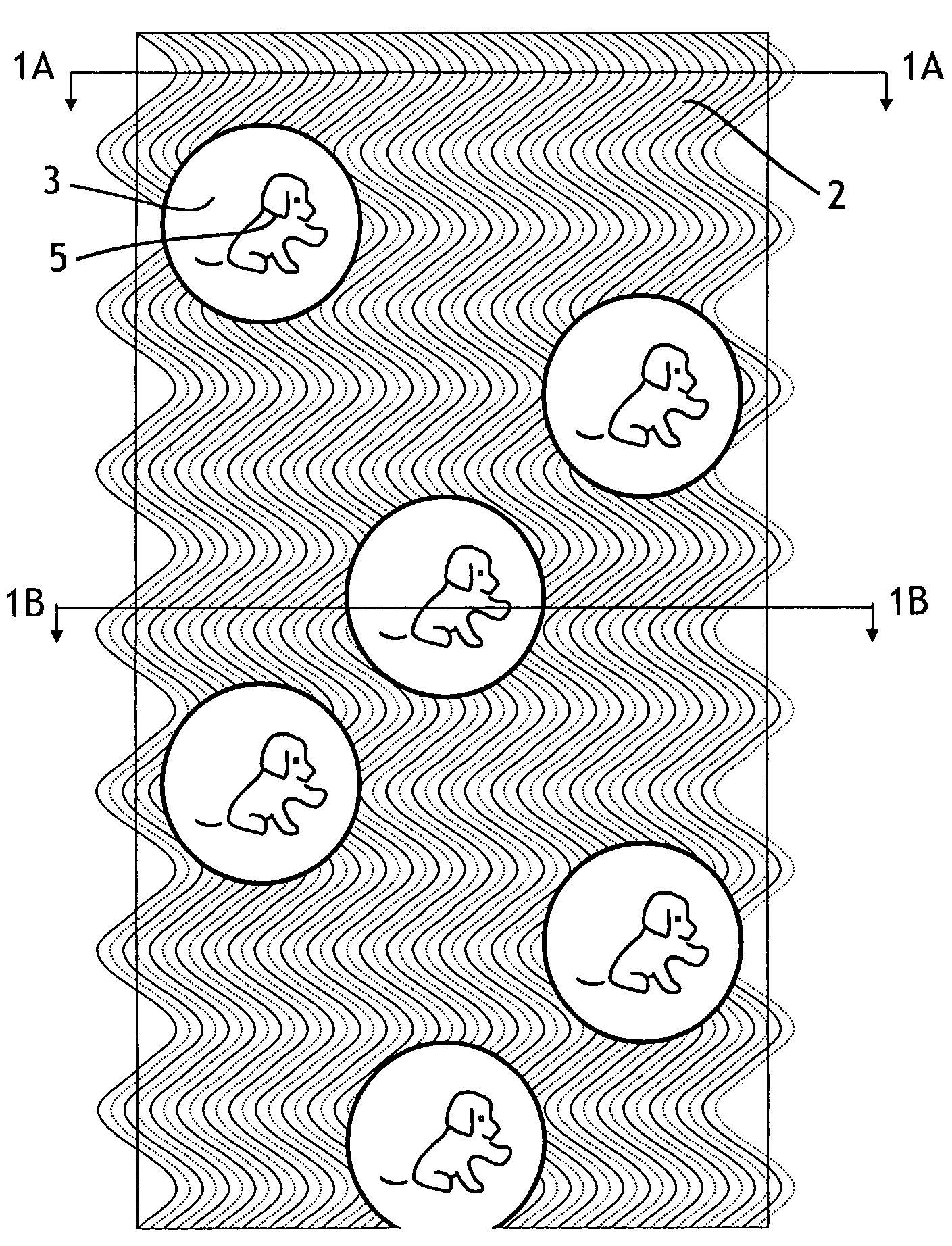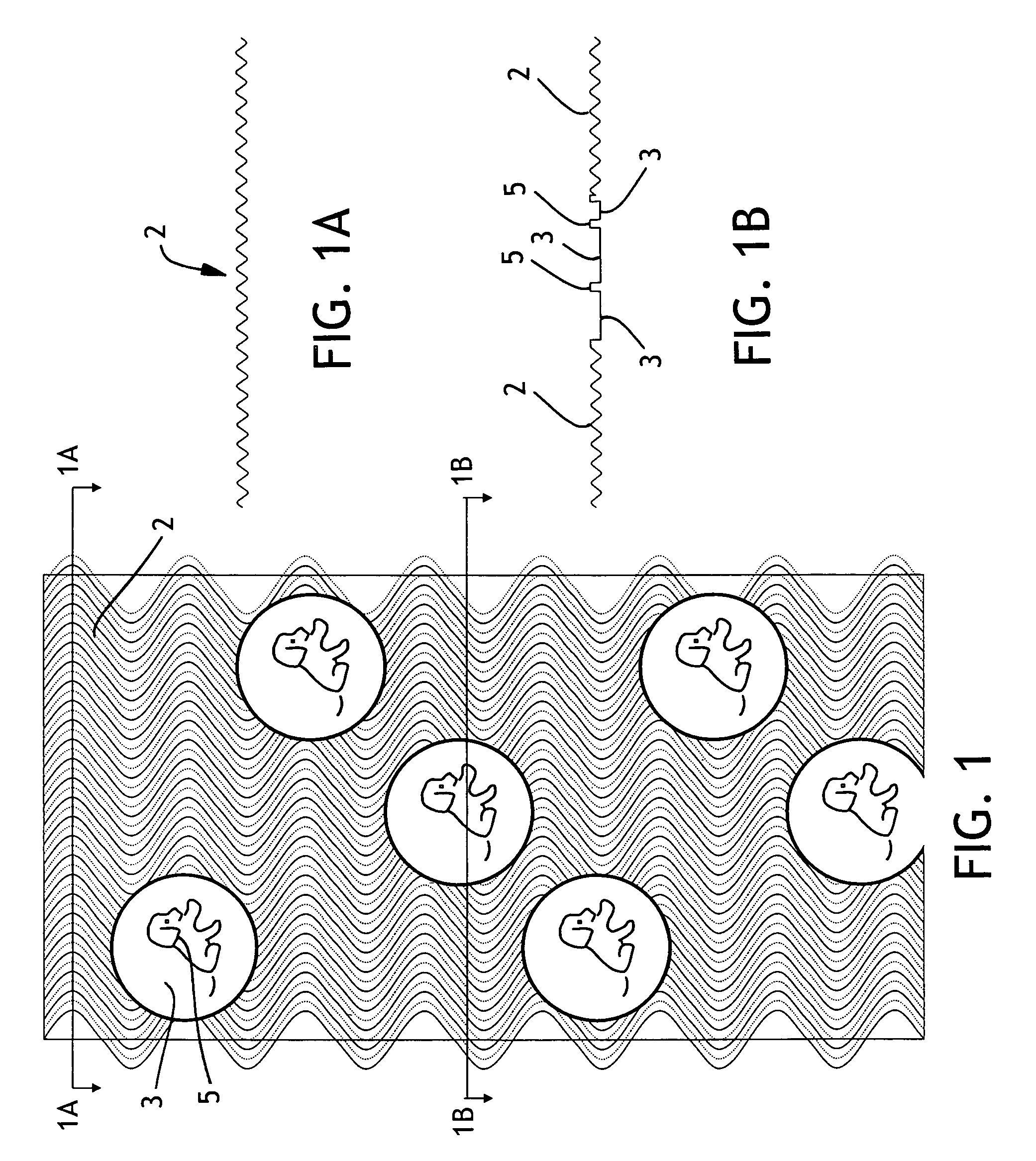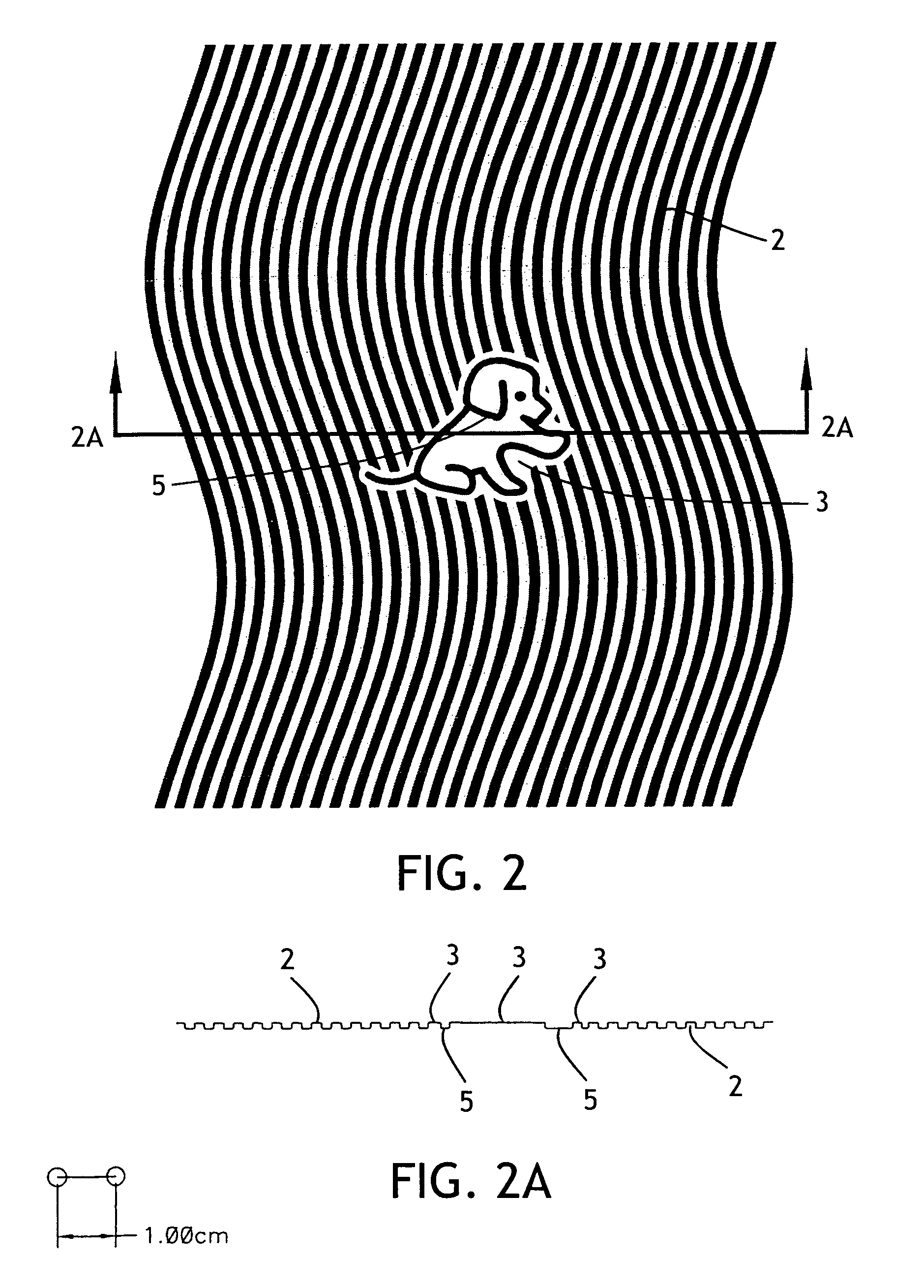Woven throughdrying fabric having highlighted design elements
a technology of design elements and fabric, applied in weaving, non-fibrous pulp addition, press section, etc., can solve the problems that the texture imparted to the dried tissue sheet can detract from the visibility of any decorative elements, and achieve the effect of reducing nesting, increasing the bulk of multi-ply tissue products, and increasing the bulk of tissue products
- Summary
- Abstract
- Description
- Claims
- Application Information
AI Technical Summary
Benefits of technology
Problems solved by technology
Method used
Image
Examples
example 1
[0058]In order to further illustrate the method of this invention, a flat, spiral wound, laminated non-woven belt was through-air-molded into a three-dimensional throughdrying fabric in accordance with this invention as described in connection with FIG. 12. The pattern roll had a textured background surface, highlight area, and puppy design element substantially as shown in FIG. 6. The three-dimensional sheet-contacting surface of the resulting throughdrying fabric is shown in FIG. 7. The throughdrying fabric was then used to produce a throughdried tissue basesheet in accordance with this invention as shown in FIG. 8.
[0059]More specifically, the non-woven belt comprised a spunbond web made from bi-component polymer fibers with a concentric sheath-core structure. The sheath material comprised Crystar® 5149 polyethylene terephthalate (PET) polyester resin (The DuPont Company, Old Hickory, Tenn.). The core material comprised HiPERTUF® 90000 polyethylene naphthalate (PEN) polyester resi...
example 2
[0064]In order to further illustrate the method of this invention, a tissue sheet was made as described in Example 1, except that a different three-dimensional pattern was through-air-molded into another flat, spiral wound, laminated non-woven papermaking belt in accordance with this invention as described in connection with FIG. 12. The three-dimensional pattern is substantially as shown in FIG. 4 and FIG. 9. The resulting three-dimensional sheet-contacting surface of the molded non-woven throughdrying fabric is shown in FIG. 10. The fabric was used to produce a molded uncreped throughdried tissue basesheet as shown in FIG. 11.
PUM
| Property | Measurement | Unit |
|---|---|---|
| z-directional elevation | aaaaa | aaaaa |
| area | aaaaa | aaaaa |
| area | aaaaa | aaaaa |
Abstract
Description
Claims
Application Information
 Login to View More
Login to View More - R&D
- Intellectual Property
- Life Sciences
- Materials
- Tech Scout
- Unparalleled Data Quality
- Higher Quality Content
- 60% Fewer Hallucinations
Browse by: Latest US Patents, China's latest patents, Technical Efficacy Thesaurus, Application Domain, Technology Topic, Popular Technical Reports.
© 2025 PatSnap. All rights reserved.Legal|Privacy policy|Modern Slavery Act Transparency Statement|Sitemap|About US| Contact US: help@patsnap.com



